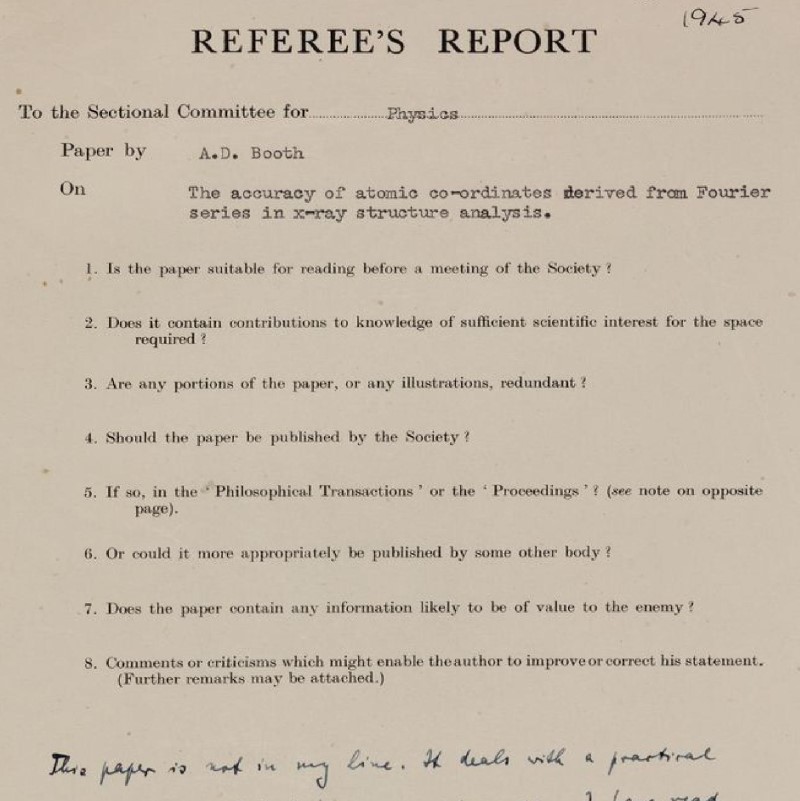For Open Access Week, we explore the challenge of ensuring that open access publishing serves the needs of the whole scientific community.

The theme of OA Week 2024 is 'Community over Commercialization', aiming to encourage conversations about which approaches to open scholarship prioritize the best interests of the public and the academic community, and which do not. Open access has emerged over the past few decades as a way to ensure the accessibility of research papers to everyone, without it being locked behind a paywall. Most publishers now offer open access options, even when this is not their default model. Whilst opening up scientific research has been widely praised by researchers, funders, institutions and the media, it hasn’t been without its challenges and criticisms.
The dominant Article Processing Charge (APC) funding model arguably puts additional financial pressure on authors if their institution does not provide funding, as they need to bear the cost themselves. This can be prohibitive to researchers who are at a career stage where they aren’t receiving large grants or are based at institutions in lower income countries. APCs can also vary enormously between publishers, meaning some researchers may be restricted as to where they submit, or may simply choose to publish their article under a non-open access licence. To address this issue Royal Society Publishing provides a generous waiver policy for our fully open access journals that includes discretionary waivers for those who lack funds.
Many publishers are offering new funding models to help address these concerns, including transformative agreements. These are agreements between an institution’s library and a publisher which cover the costs of APCs for authors at the institution. Royal Society Publishing currently has over 360 agreements in place with institutions all over the globe, and with more in development. Whilst transformative agreements are a major step in helping to ensure open access is affordable, they are still limited by library budgets which may favour institutions in wealthier countries. More innovative models are being developed to ensure open access publishing opportunities are equitable for all. For example, a group of national research funding organisations known as cOAlition S are in the process of developing a fairer global pricing framework and tool to help improve the financial equity of services provided by publishers. Royal Society Publishing’s Open Access Equity scheme supports tens of thousands of eligible researchers in over 100 low- and middle-income countries and territories by providing automatic APC waivers in all Royal Society journals. We also allow authors to deposit their accepted manuscript in an accessible repository (known as ‘green open access’).
In addition, there are challenges with so-called predatory journals which tend to publish large amounts of articles quickly at the expense of editorial integrity. These are for-profit enterprises that mainly exist to make money. Often predatory journals have a very rapid peer review process, the spelling and grammar can be poor quality, and their impact factors may be fake. Pressure on authors to publish can exacerbate this issue, as they may be lured in by the high acceptance rates and extremely fast turnaround times. Think. Check. Submit. is a cross-industry initiative which aims to raise awareness of how to spot predatory journals. Their useful checklists provide researchers with useful tools to help determine whether a particular journal is trustworthy.
Even established publishers risk losing trust amongst the scientific community if their main focus becomes about speed and publication volumes. It is therefore crucial that open access and hybrid journals maintain high levels of standards for their editorial, peer review and production processes.
Of course, not all for-profit publishers are predatory. There are many that have stringent editorial processes and procedures. However, unlike not-for-profit publishers that put money back into the scientific community, for-profit publishers are aiming to make a profit for their shareholders. This can result in very high APCs, exacerbating the pressure on researchers and the scientific community at large. At Royal Society Publishing, we try to keep our APCs fair, and pricing reflects the service the journals deliver to the research community and covers integrity checks, management of peer review, online hosting, promotion, author support, our many open science and reproducibility initiatives and ongoing investment in technology. Any surplus generated goes back into the work of the Publishing team and the Royal Society as a whole.
The academic system which prizes academic publications so highly also plays a large role in these challenges. Funding bodies often favour researchers who have published high numbers of papers in high impact journals. This in turn puts pressure on researchers and institutions as a whole to publish more. Larger numbers of researchers are needed to act as editors and reviewers, often within narrow timeframes. Ideally, publishing would meet the needs of the scientific community; provide open research; ensure the highest quality of research integrity; and utilize financial models that are truly equitable and empowering for all. As publishing continues to evolve, it is important that everyone involved in the publishing process works together to take steps towards facilitating the publication of high quality, open research at a fair cost for all members of the international scientific community.
Image caption: Illustration of the scales of justice symbolizing the measure of a case’s support and opposition in a court of law. Credit: AWesleyFloyd iStock




